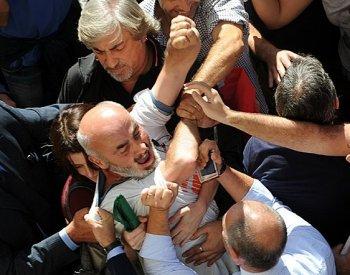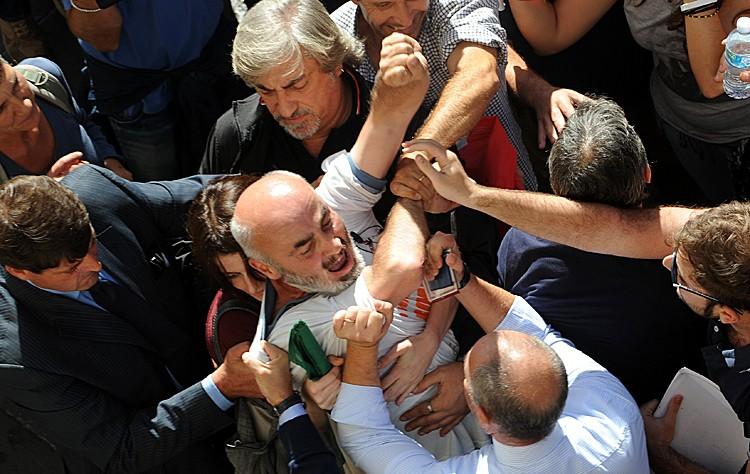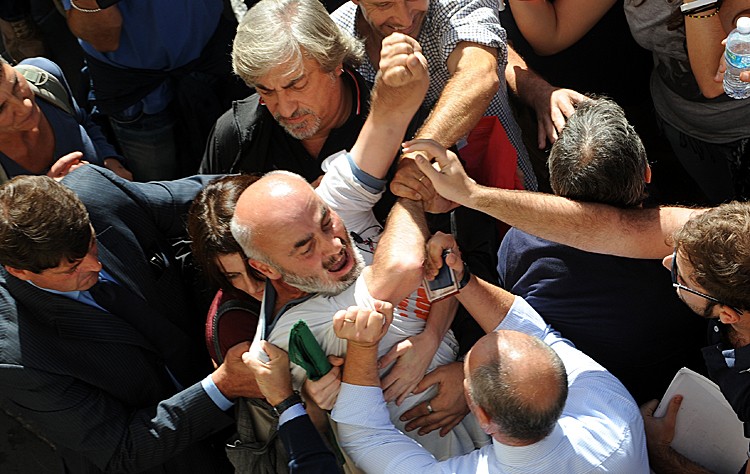Spanish Indignados a Force in Global Movement
Occupy Wall Street and its U.S. offshoots pale in size compared to their Spanish cousin, which may be taking a leading role in an increasingly globalized and coordinated movement.

Members of the Indignados movement clash with police on Oct. 12, during a protest against the government in the center of Rome. TIZIANA FABI/AFP/Getty Images
|Updated:





